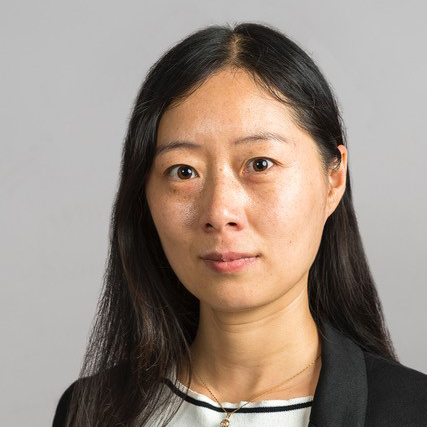Submitted by Administrator on Thu, 01/11/2018 - 09:36
Lili Jia wants to change people’s behaviour without them even realising. She knows that what we eat is influenced by a complex mix of factors, and that sometimes knowledge of what we should eat doesn’t translate to what we actually consume. She’s found a way to interact with big influencers through her role at Cambridge’s Centre for Industrial Sustainability. Her aim is to make the better choice – for health and for the environment - easier to make.
Q: Where have you come from?
A: I’m from Inner Mongolia, China.
Q: Tell me something about the food there
A: In Inner Mongolia we have a lot of dairy products. We have a tradition of drinking milk tea, but it’s a bit different to here in the UK. We drink it with salt, not sugar. I don’t do that here! It’s because Mongolian people traditionally travelled a lot to find grass to feed their animals. Tea was a major source of vitamins in their diet and the salt added extra minerals. We also eat Mongolian quark, a dried cheese that’s high in protein and very nutritious. The weather is really windy so it’s easy to make quark. I like it a lot.

Farmed animals in Inner Mongolia
Q: Why are you here?
A: My research brought me here. I’m interested in healthy and sustainable behaviour change. It is an interdisciplinary area. I did a PhD in economics, and after that I was keen to solve real world problems. Sustainability is a big global challenge, and I believe behaviour change is key to the solution. I found economics wasn’t sufficient to address this big challenge, so I started to work in a more interdisciplinary way. In Cambridge you can find world-leading researchers in so many disciplines. I really enjoy this excellent environment.
Q: What’s your research purpose?
A: I want to motivate behaviour change for health and sustainability. The two things often come together. If you think about why people consume local organic food, it’s not only because they care about the environment and how their food is produced but also because they want to eat healthily.
I’m working with colleagues at the Institute for Manufacturing (IfM) to understand companies’ behaviour, and work out how to integrate health and sustainable values into their business models. At the moment we’re doing a scoping project with Morrisons to help them understand the opportunities available to them, and test new strategies.
Q: How does this relate to global food security?
We know that around two billion people eat too many calories but don’t get the nutrients they need, and they suffer the health consequences. An important part of addressing global food security is making sure everyone has access to enough nutritious food for a healthy life. Making healthy dietary choices is very complicated in the current food environment. Despite many people knowing what a healthier diet is, they often can’t achieve it. There are so many trade-offs and constraints when it comes to deciding what to eat; things like budget, time, knowledge and cooking skills can influence us. We need to find ways to remove these barriers. Companies can do it by providing a better service, so their consumers can make healthier and more sustainable food choices without even thinking about it. The more effort the food industry puts in to transition its service towards health and sustainability, the less effort the customers need to make.
Q: Where are you going?
A: I’m very interested in developing countries too; they have an even bigger challenge. In African countries people are suffering from the increasing consumption of fats and refined sugar, as incomes rise and people move to towns and cities. This isn’t healthy or sustainable, and it’s a trend that needs to be changed as early as possible. Once we can demonstrate some results in the UK, there are many global companies we can go to. I hope in the future we can motivate them to help change diets in developing countries in a more efficient way.
Q: Do you feel part of something bigger than yourself?
A: Definitely. I’m working with psychologists in the Social and Political Sciences Department, and public health specialists at the MRC, sharing knowledge and experience. I also work with a food company to understand how to help it address health and sustainability. I realised sometimes it’s not that big companies don’t want to change, but that they have difficulties in achieving change. Understanding their barriers is critical to helping companies transition towards health and sustainability. I’m working with my colleagues at IfM to explore the various perspectives of different stakeholders, then working out the strategies to achieve change.

I’m also involved in entrepreneurship training through grants we’ve received from EIT Food, a pan-European partnership involving the University of Cambridge. I co-organise summer and winter schools, and mentor young entrepreneurs from all over Europe. The aim is to encourage them to integrate health and sustainability values right from the beginning of their business ideas, not later on in the life of the company.
Q: What’s the one piece of advice you’d give others who want to follow in your footsteps?
A: Motivating behaviour change is hard and complicated, but it’s unavoidable if we really want to address global food security. This requires comprehensive collaborations across disciplines and between research and industry. I would encourage people to dare to challenge disciplinary research boundaries and be as open minded as possible.
Q: What would make the world a better place?
A: I believe what Albert Einstein said: “our task must be to free ourselves by widening our circle of compassion to embrace all living creatures and whole of nature and its beauty”. I think interdisciplinary and applied research will make the world a better place, and will provide the solution to global food security.

